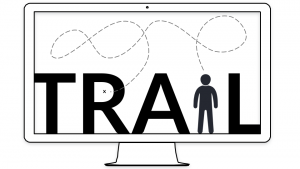Home
TRAIL-RCT: TeleRehabilitation with Aims to Improve Lower Extremity Recovery Post-Stroke: A Randomized Controlled Trial

We are inviting stroke survivors with lower leg hemiparesis to participate in a study on telerehabilitation, the delivery of rehabilitation using technology. In this study, we are evaluating an exercise program to improve leg functioning that is delivered remotely using video-conferencing technology.
Interestingly, we recently conducted a proof-of-concept, single-group feasibility study of TRAIL (TRAIL-PROOF), where we found TRAIL to be safe and feasible. We reported no serious adverse events and 100% retention of participants. We also found improvements in our clinical outcomes, including increased lower extremity strength, functional balance, and balance self-efficacy. Thus, from TRAIL-PROOF, it is evident that the TRAIL protocol has potential to improve lower extremity function among community-dwelling adults with stroke experiencing lower extremity impairment. We now propose a RCT to further study the TRAIL program (TRAIL-RCT).
The main goal of the TRAIL-RCT study is to determine if telerehabilitation is an effective option to support stroke survivors as they transition from rehabilitation to living in the community. The results of our study will generate new knowledge that can improve clinical practice and lead to further research to better support stroke survivors through telerehabilitation. TRAIL-RCT will build on the TRAIL-PROOF study by conducting the study over a 3-year period and comparing the effects of TRAIL to a self-management for post-stroke complications and secondary prevention education program (EDUCATION).
We are currently recruiting participants from the following sites across Canada: Vancouver, Winnipeg, London, Toronto, Kelowna and Halifax.
If you are interested in participating in this study and want to find out more about your eligibility, please send the study coordinator, Elise Wiley, an email at wileye@mcmaster.ca to further discuss the study!